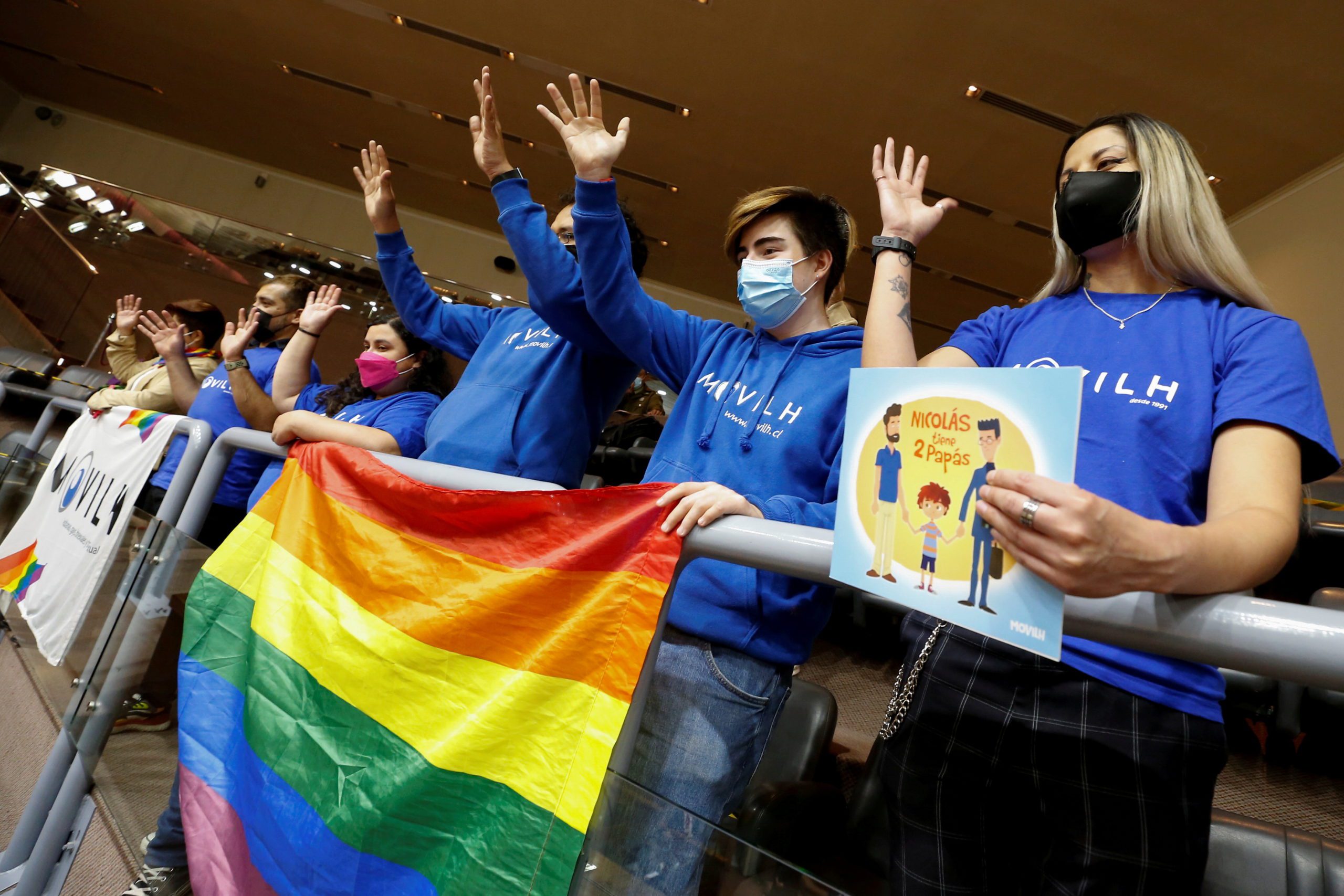Generation Black TV - Live
Chile Legalises Same-Sex Marriage In Landmark Move
Chile Legalises Same-Sex Marriage In Landmark Move
[simple-author-box]

People raise their hands during a session of the Senate to approve a same-sex marriage bill in Valparaiso, Chile December 7, 2021. // via Reuters
Chile has legalised same-sex marriage this month, in a historic moment for the conservative nation after a decade-long legal battle.
In June, the current President of the South American country, Sebastián Piñera, announced that his government would sponsor a bill to make same-sex marriage legal.
The National Congress approved the bill on December 7 and the President signed the legislation into law on December 9.
Chile’s Senate and lower house of parliament both voted heavily in favour of the bill which had previously been partially approved in November before the Senate sent it back to a committee to clarify ambiguities.
The law will come into effect from March 10 2022 and has been heralded by activists as a triumph for the nation.
This milestone has been achieved ahead of a crossroads election later this month, when presidential candidate José Antonio Kast will run against progressive former student leader Gabriel Boric on December 19.
Kast’s agenda is founded upon traditionalist politics formed by Catholic values and has caused some concern for Chile’s LGBTQ+ community.
While Kast denies being homophobic, he has previously said that “society works best with heterosexual couples”.
Parts of his presidential promises include subsidies to married heterosexual families with children, deliberately excluding same-sex couples.
Whilst Kast served as a member of the Chamber of Deputies from 2002 to 2018, he historically voted against progressive legislation.
This includes opposing an anti-discrimination law in 2012 and the gender identity bill, which was passed in 2018 to give legal protections to transgender people.
Although Kast disagrees with same-sex marriage, he had said he would have signed the bill into law anyway had it been passed by Congress during a potential presidency of his.
José Antonio Kast won a majority in the first round of Chile’s presidential election, leading the poll with 28%.
It has been a long road for same-sex marriage advocates, since 2007, when then-President Michelle Bachelet pushed Congress to pass a same-sex law.
In 2009 whilst running for President, Piñera pledged to end discrimination based on sexual orientation and included a same-sex couple in one of his televised campaign ads.
In December 2018, the Supreme Court of Chile recognised marriage as a fundamental right and shortly after, a same-sex couple filed suit against the ban on same-sex marriage, arguing that it was unconstitutional and a violation of human rights.
But the suit was not upheld and pushback from members of Congress and the Catholic Church led to a long legal battle for the nation’s LGBT community that has finally concluded this month.
Catholicism is the primary religion in Chile, with around two-thirds of the population aligning themselves with the faith.
In 2009 a poll concluded that only 33.2% of Chileans were in favour of allowing same-sex marriages.
Another poll carried out in 2020 showed that support for same-sex marriage in the nation had climbed to 74%.
Civil unions have been permitted in Chile since 2015, which affords same-sex partners many but not all the benefits of married couples.
The equal marriage bill will allow same-sex couples parental rights, which was not possible under the Civil Union act.
President Piñera previously opposed the law but has since said “life” and “meeting people” had led him to change his mind, and he gave the bill urgent status in June this year.
In total there are only 30 countries across the globe where same-sex marriage is legal, including the new addition of Chile.
In 2001, the Netherlands became the first country in the world to allow same-sex couples to marry, divorce and adopt children.
And in 2010, Argentina made history when it became the first Latin American country to allow same-sex marriage.
Chile is the sixth nation in South America to legalize same-sex marriage, joining Argentina alongside Uruguay, Brazil, Colombia and Ecuador.


